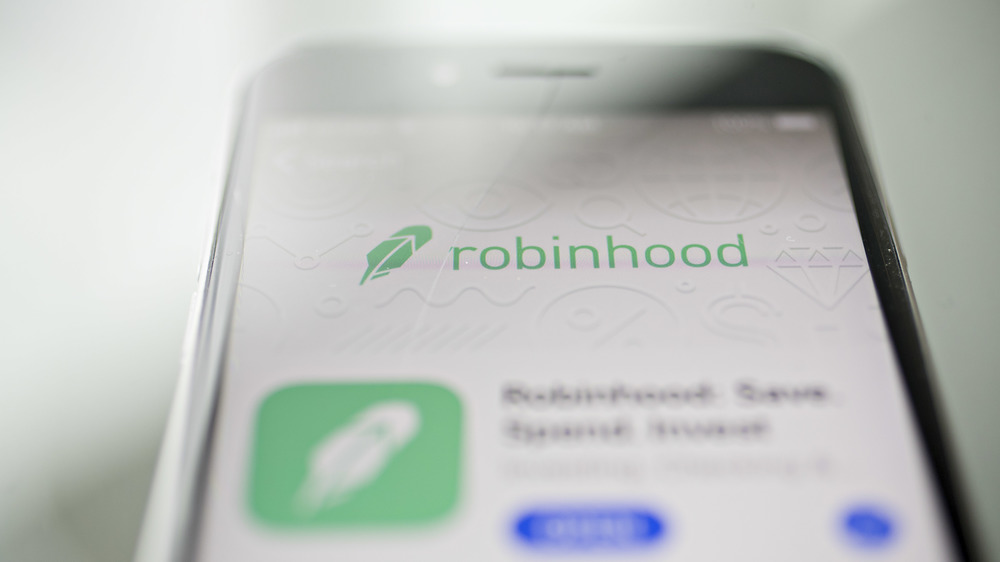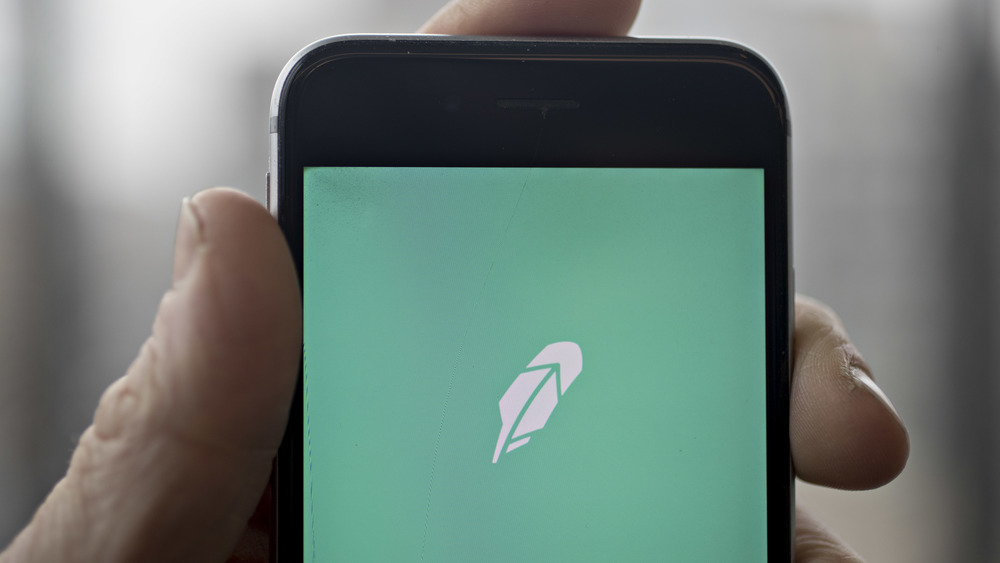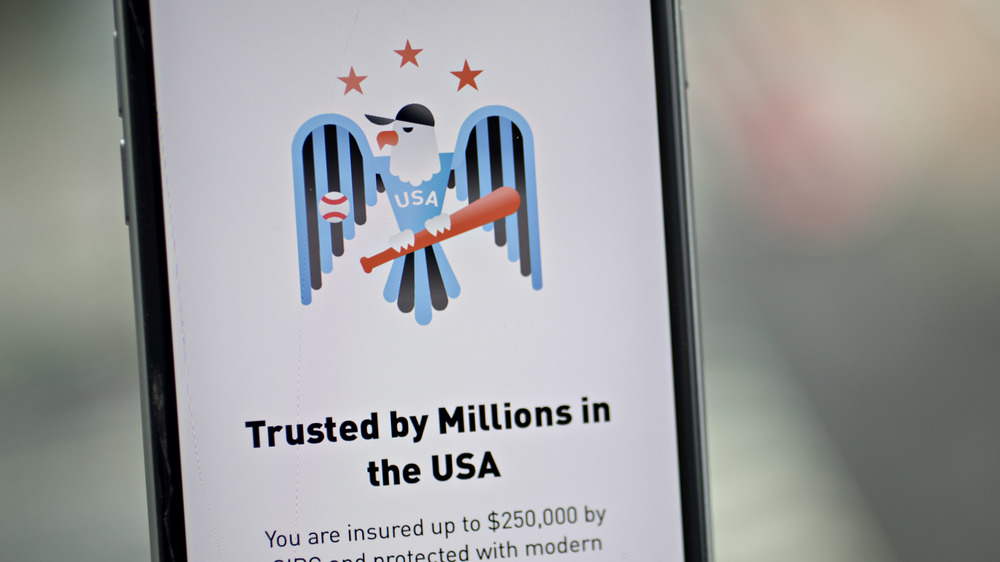Robinhood: The Messed Up Truth About The Brokerage App
Launched in 2013, the commission-free stock trading app Robinhood has billed itself as the everyman's way to take part in the stock market, a financial landscape largely reserved for Wall Street fat cats and more fiscally well-off individuals with a bit of banking know-how in days gone by. Aside from the obvious allusion to the legendary outlaw who famously stole from the rich to give to the poor, Robinhood literally claims to be "[d]emocratizing finance for all" on its Twitter page. But in late January 2021, the investment app lost its credibility in the eyes of the very users that had made it such a success after millions of internet denizens and Average Joe investors created a situation that threatened it to put its money where its mouth is. Or rather, in their accounts.
As Buzz Feed reported, the scandal began after a group of self-styled "degenerates" on the Reddit group r/WallStreetBets (WSB) had figured out a way to make the stock of video game retailer GameStop surge more than 480 percent in a week. And they did it in a way that made billionaire hedge fund managers lose quite a bit of cash. But just how did they do it, and why are they now angry with the platform largely responsible for their success in doing it? Let's take a look at what happened to get a better grasp on this situation that is rocking the stock market.
How Robinhood users and other average investors stuck it to the suits
According to CNBC, the ease and addictive nature of the Robinhood platform combined with the increased economic uncertainty and free time caused by the coronavirus pandemic brought new traders to the stock market by the millions. With as many as 13 million users, the app has given a whole new demographic access to the markets. And as Fortune reports, many of these began to promote GameStop's stock on the WSB subreddit, claiming it was going to go up despite a steady decline in the company's stock price over the last few years. What they had noticed and shared online was that the stock had been short sold to an excessive amount.
According to Wall Street Survivor's post on YouTube, short selling is a way to make money on a stock's declining price, basically betting on a company to fail. Simply put, a short seller borrows shares and sells them at certain price in hopes that it will go down. The idea is that once the price goes down, the short seller can purchase the stocks borrowed — what is called "covering" — and keep the difference, therefore making a profit. But if the stock price goes up, they lose money. And if billionaire hedge fund managers have shorted a stock to a ridiculous degree, as was the case with GameStop, their losses could be astronomical. According to Business Insider, those losses were estimated to be as high as $19 billion.
Robinhood users claim the app is helping billionaires not lose money
After the news broke about what happened with GameStop, it didn't take long for people using Robinhood and other similar apps, such as Webull, Tastyworks, and others, to realize that hedge funds had shorted several other companies' stocks in a similar way. According to Buzz Feed, these stocks included AMC Entertainment, Express Clothing, Blackberry, and Nokia, among others. After a similar effort drove more small investors to these companies, leading to rising stock prices, and thus threatening the hedge funds' short investments in them, Robinhood and other platforms made the controversial decision to restrict trading of them. On January 28, Robinhood users could only sell these companies' stocks, but were not allowed to open positions in them or purchase more, driving the stock prices down. Unsurprisingly, they were not happy about what they saw as market manipulation in favor of Wall Street fat cats.
Users took to Reddit, Twitter, and the trading social media network StockTwits to express their frustration. The most notable criticism was the obvious irony of the app named after Robin Hood working to help keep money in the hands of the rich. Others claimed that the notions of the "invisible hand" moving the "free market" were laid bare as nothing but myths used to maintain wealth in the hands of the few. As Newsweek reported, Robinhood claimed that it restricted its users' access to certain securities to "protect investors," but the vast majority remained unconvinced.


